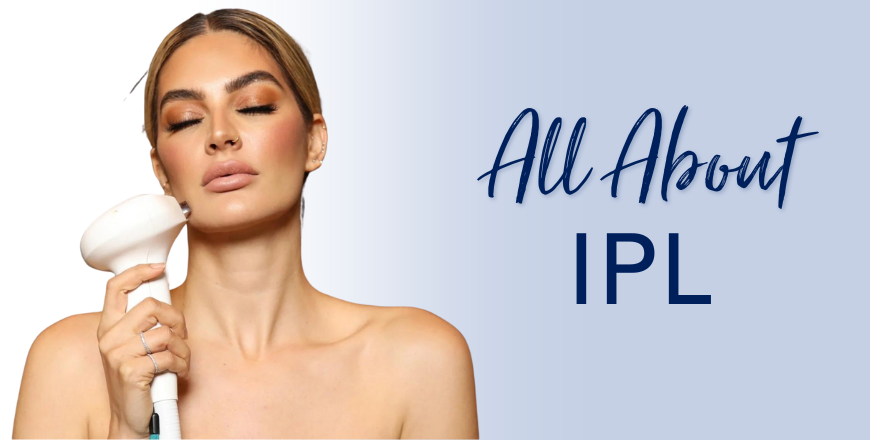What is IPL?
Intense Pulsed Light, also known as IPL, is a non-invasive cosmetic procedure that utilizes high-intensity pulses of light to target specific areas of the skin, helping to improve its tone, texture, and overall appearance. IPL is used to treat a variety of skin conditions and concerns from sun damage and age spots to acne scars and rosacea, IPL therapy can help to reduce the appearance of pigmentation, redness, and other skin imperfections.
How does IPL work?
A broad-spectrum pulse of light is emitted by the IPL device unique to targeting the problematic parts of the tissue. The light energy causes destruction or, photothermolysis, of the targeted tissue, while leaving surrounding tissue uninjured.
Does IPL hurt?
IPL therapy is a relatively quick and painless procedure that typically requires little to no downtime. Most people report feeling a mild snapping or stinging sensation during the treatment, but this discomfort is usually minimal and well-tolerated.
Who is a candidate?
Ideal candidates for IPL Therapy have light-colored skin with photoaged, sun damaged skin.
- Desire to remove unwanted pigmentation (age spots, freckles, sun damage).
- Suffer from rosacea
- Have unwanted small vascular lesions
- Desire to brighten and even skin complexion
- Are not tan at the time of desired treatment
- Are not on any photosensitizing medications
Who is not a candidate?
- Very dark skin: IPL is not recommended for individuals with very dark skin, as the high-energy light used in the treatment may be absorbed by the melanin in the skin, leading to increased risk of side effects such as hyperpigmentation.
- Active skin infections or rashes: IPL should not be performed on individuals with active skin infections or rashes, as the treatment may exacerbate these conditions.
- Pregnancy: IPL is generally not recommended for pregnant women, as the safety of the treatment during pregnancy has not been established.
- Antibiotics use: It is generally not recommended to undergo IPL treatment while taking antibiotics because antibiotics can increase the skin's sensitivity to sunlight and other environmental factors, and using IPL in combination with antibiotics may further increase the risk of sun sensitivity and skin irritation.
- Retin-A/Retinoid use: It is generally not recommended to undergo intense pulsed light (IPL) treatment while using retinoids, such as Retin-A because it can increase the skin's sensitivity to sunlight and other environmental factors, and using IPL in combination with retinoids may further increase the risk of sun sensitivity and skin irritation.

